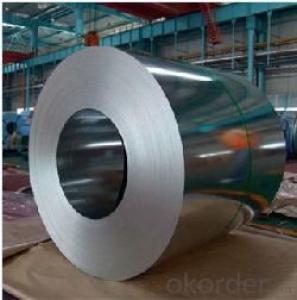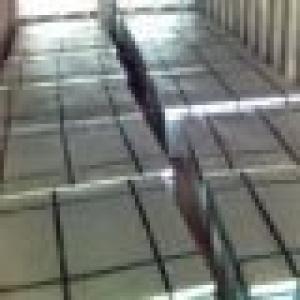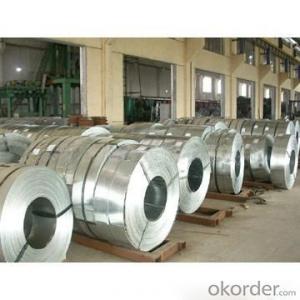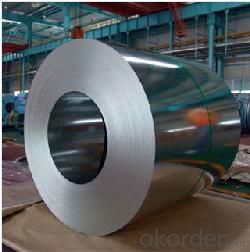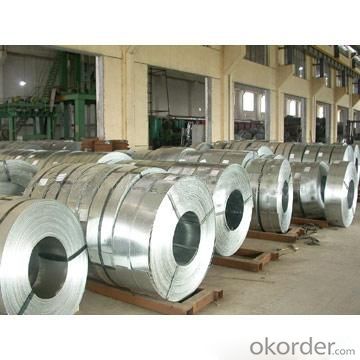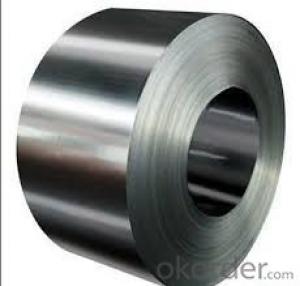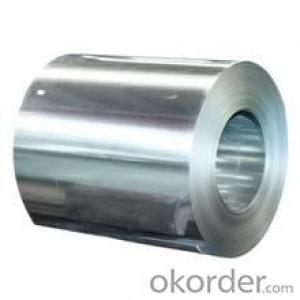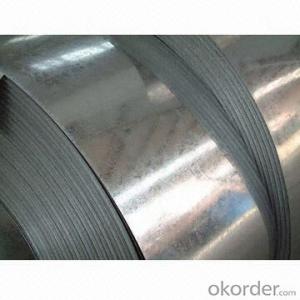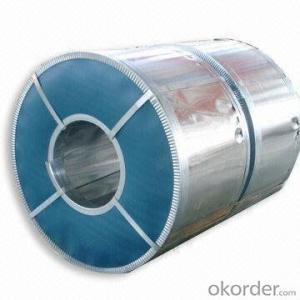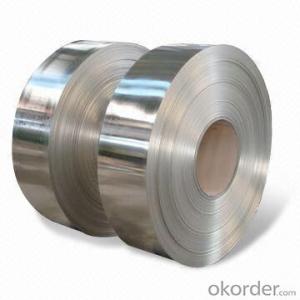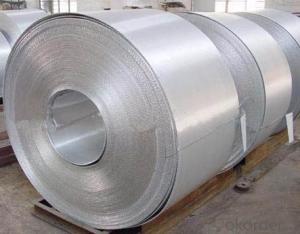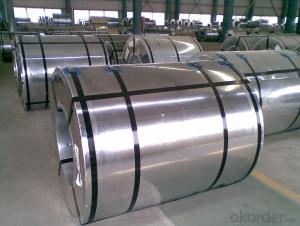HOT DIP Galvanized steel coils Z40-Z600
- Loading Port:
- Shanghai
- Payment Terms:
- TT OR LC
- Min Order Qty:
- 25 m.t.
- Supply Capability:
- 10000 m.t./month
OKorder Service Pledge
OKorder Financial Service
You Might Also Like
Hot dip galvanized steel coils
Specifications
galvanized steel coil
1.Thickness:0.135-4.0mm
2.Width:600-1500mm
3.Zinc:40g-275g
4.Material:SGCC,DX51D,G550,SPGC,etc.
product name | Galvanized steel coils |
thickness | 0.135mm-4.0mm |
width | 600mm-1500mm762mm,914mm,1000mm,1200mm,1219mm,1250mm |
zinc coating | 40g,60g, 80g, 90,100g, 120g, 140g,180g, 200g, 250g, 275g and so on. |
standard | ASTM, AISI, DIN, GB |
material | SGCC,DC51D,DX51D,DX52D,,SGCD,Q195,Q235,SGHC,DX54D, S350 GD, S450 GD,S550 GD |
spangle | zero spangle, regular spangle or normal spangle |
surface treatment | chromated and oiled, chromated and non-oiled |
packing | export standard. |
payment | T/T, L/C or DP |
min order | 25 tons (one 20ft FCL) |
coil weight | 3-8ton or as client requirement. |
quality | soft or hard quality |
Galvanized steel coils
STEEL GRADE | CHEMICAL COMPOSITION % | MECHANIC PROPERTY | C.B OF COATING | COATING | ||||||||||
C | Si | Mn | S | P | T.S | Y.S | E.L | |||||||
x103 | x103 | x102 | x103 | x103 | Mpa | Mpa | % | d=0 180° | G/M² | |||||
JIS G3302 SGCC | 12 | 30 | 41 | 31 | 21 | 480 | 300 | 13 | OK | Z60-150 | ||||
JIS G3302 SGCH | 12 | 10 | 21 | 18 | 8 | 680 | 650 | OK | Z60-150 | |||||
ASTM A653 CS.B | 20 | 30 | 60 | 35 | 30 | 386 | 205~380 | 20 | OK | Z80-275 | ||||
DX51D+Z | 29 | 21 | 18 | 1.8 | 11 | 355 | 245 | 38 | OK | Z80-275 | ||||
G550 | 20 | 6 | 73 | 5 | 17 | 715 | 654 | 8 | OK | Z80-275 | ||||
- Q: What are the dimensions of steel coils used in the agricultural equipment industry?
- The dimensions of steel coils used in the agricultural equipment industry vary depending on the specific application and requirements of the equipment. However, some common dimensions for steel coils used in this industry range from 0.5mm to 6mm in thickness and 600mm to 2000mm in width. The length of the coils can be customized based on the needs of the specific equipment. Additionally, the weight of the coils can also vary, typically ranging from a few hundred kilograms to several tons. It is important to note that these dimensions are not fixed and may vary depending on the manufacturer and the specific agricultural equipment being produced.
- Q: can anyone help me to find any webpage about lists/types of stainless steel?
- Types of stainless steel There are over 150 grades of stainless steel, of which fifteen are most common. The AISI (American Iron and Steel Institute) defines the following grades among others: - 200 Series—austenitic iron-chromium-nickel-manganese alloys - 300 Series—austenitic iron-chromium-nickel alloys Type 301—highly ductile, for formed products. Also hardens rapidly during mechanical working. Type 303—free machining version of 304 via addition of sulfur Type 304—the most common; the classic 18/8 stainless steel Type 316—Alloy addition of molybdenum to prevent specific forms of corrosion - 400 Series—ferritic and martensitic alloys.
- Q: How are steel coils used in the production of agricultural trailers?
- Steel coils are used in the production of agricultural trailers to provide strength and durability to the trailer's frame and structure. The coils are typically shaped and welded together to form the trailer's chassis, ensuring it can withstand heavy loads and withstand the rigors of agricultural use.
- Q: I'm not really sure if carbon steel is considered a metallic material.
- Steel with a lower to medium level of carbon will typically be reserved for metal sheeting for use in construction, due to its increased hardness and malleability.
- Q: Can steel coils be galvanized?
- Yes, steel coils can be galvanized. Galvanizing is a process of applying a protective zinc coating to steel to prevent corrosion and increase its durability. Steel coils are commonly galvanized to enhance their resistance to rust and other forms of corrosion.
- Q: Can you weld copper or brass to steel?
- Copper cannot be welded to steel since copper has a significantly lower melting point than steel, and brass has an even lower melting point than copper. Therefore, traditional fusion welding processes would not work. It's possible to braze copper to steel using brass as a filler metal, but this is not usually done because of practical concerns. (For example, the melting point of zinc brass is close enough to that of copper, that it's hard to heat the joint to the melting temperature of the brass without also melting the copper.) Rather, it's common to braze copper to steel using silver-copper-zinc brazing alloys instead. These alloys have a lower working temp. than zinc brass. Copper-silver-phosphorus brazing alloys, or zinc-tin hard solder could also be used. Also, solid state welding methods can be used to join copper to steel, but this is limited to very special applications. Friction welding can be used to join copper pipes and/or shafts to steel ones. Explosion welding can be used to join a copper or brass sheet to a steel plate. Forge welding may be possible between copper and steel, but I don't know of any applications for this.
- Q: How are steel coils inspected for impact resistance?
- Steel coils are inspected for impact resistance through various methods including conducting visual inspections, performing non-destructive testing such as ultrasonic testing and magnetic particle inspection, and conducting drop tests to simulate real-life impact scenarios. These inspection techniques help ensure that the steel coils meet the required standards and can withstand potential impacts during transportation, handling, and usage.
- Q: What are the pros and cons of non-stick and stainless steel pots and pans ?Thanks
- Non stick doesnt stick but after time the non stick doesnt stay non stick and then time to replace Stainless steel. some things may not stick but its best to put down a little pam, or cooking oil, and or aluminum foil
- Q: What are the main factors that affect the strength of steel coils?
- The main factors that affect the strength of steel coils are the composition of the steel, the manufacturing process, and the heat treatment applied.
- Q: i want to know what is light gauge steel and the diffrences between light gauge steel and steel for roof truss.
- as a welder i can answere this. wel i think i can after 2 years of classes. so...light guage steel usually referes to the THICKNESS of the metal. also known as SHEET METAL. the only diffrences between light guage and roof truss is that a truss will be thicker metal ex- an i-beam for a structure is usually 1/2inch or 3/8 for smaller buildings. also there is no such thing as light weight steel. steel is steel the only thing that determins its weight is its size/thickness aluminum is a whole nother ballgame. ever see a pound of aluminum vs. a pound of steel? aluminum can be 1/2 or less the weight of steel. but its tensile strength suffers EX. say steel will snap at 70,000 pounds, aluminum will snap at 40,000 pounds, if it even snaps that is! it just tends to bend like rubber. aluminum is handy for many things because it will not rust.
Send your message to us
HOT DIP Galvanized steel coils Z40-Z600
- Loading Port:
- Shanghai
- Payment Terms:
- TT OR LC
- Min Order Qty:
- 25 m.t.
- Supply Capability:
- 10000 m.t./month
OKorder Service Pledge
OKorder Financial Service
Similar products
Hot products
Hot Searches
Related keywords
